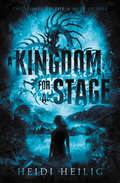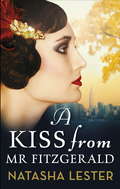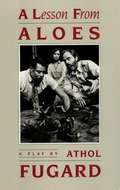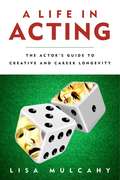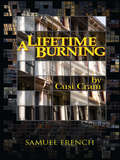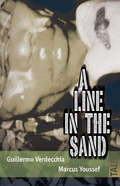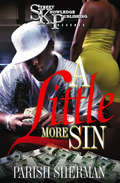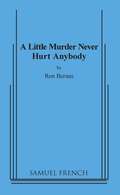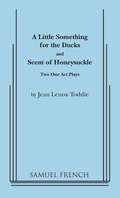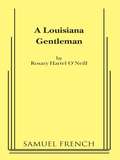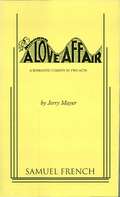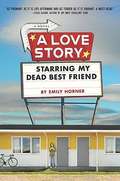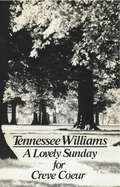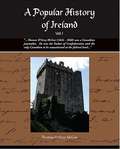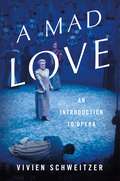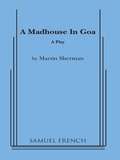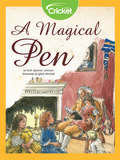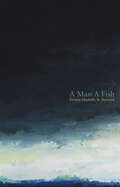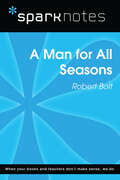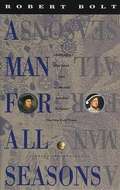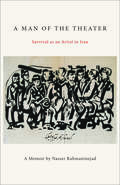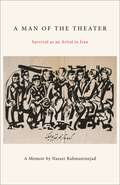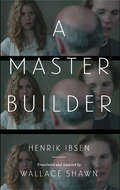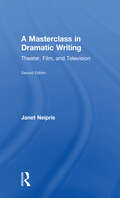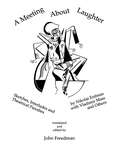- Table View
- List View
A Kingdom for a Stage
by Heidi HeiligCaught in a war between the rebels and the invading colonizers, Jetta must make an impossible choice—save her people or protect her sanity.The second book in Heidi Heilig’s acclaimed Shadow Players trilogy blends traditional storytelling with ephemera to weave an enthralling fantasy that fans of Leigh Bardugo and Sabaa Tahir will sink into.Jetta is a wanted criminal. The army wants her for treason against the crown, for the sabotage of Hell’s Court temple, and for the murder of General Legarde. They also want her for the power in her blood—the magic that captures wandering spirits to give life to puppets, to rocks, to paper . . . to weapons. They’re willing to trade the elixir that treats Jetta’s madness for the use of her blood. The rebels want her, too, to help them reclaim their country. Jetta may be the one who can tip the scales in this war.But Jetta fears using her power will make her too much like Le Trepas, the terrifying and tyrannical necromancer who once held all Chakrana under his thumb—and who is Jetta’s biological father. She’s already raised her brother from the dead, after all. And scared off Leo, the only person who saw her as she truly is. With Le Trepas at large and a clash between the army and the rebels becoming inevitable, Jetta will have to decide if saving her country is worth sacrificing her soul.Acclaimed author Heidi Heilig creates a rich world inspired by Southeast Asian cultures and French colonialism. Told from Jetta’s first-person point-of-view, as well as chapters written as play scripts, and ephemera such as songs, maps, and letters, A Kingdom for a Stage is a vivid, fast-paced journey that weaves magic, simmering romance, and the deep bonds of family with the high stakes of epic adventure. It will thrill fans of Stephanie Garber and Renée Ahdieh.
A Kiss From Mr Fitzgerald: A captivating love story set in 1920s New York, from the New York Times bestseller
by Natasha LesterFrom New York Times bestselling author of The French Photographer'A glamorous, transporting read' Woman's Weekly . . .IN 1920s NEW YORK, EVERYONE IS CHASING A DREAM . . .The Roaring 20s - a time for glamour, frivolity and freedom for women. But for Evie Lockhart, a small-town girl who is determined to become one of the first female doctors, it means turning her back on her family and the only life she's ever known.In a desperate attempt to support herself through Columbia University's medical school, Evie auditions for the infamous late-night Ziegfeld Follies on Broadway. But if she gets the part, what will it mean for her new relationship with Upper East Side banker Thomas Whitman - a man Evie thinks she could fall for, if only she lived a less scandalous life . . .Captivating and inspirational, A Kiss From Mr Fitzgerald is a love story starring a woman ahead of her time, set against the backdrop of Jazz Age New York. Perfect for fans of Lucinda Riley and Kate Furnivall.'If you're mad about the roaring twenties and all things Gatsby, this romance will have you enchanted' WOMAN'S DAYPRAISE FOR NATASHA LESTER:'A fantastically engrossing story. I love it' KELLY RIMMER'Intrigue, heartbreak... I cannot tell you how much I loved this book' RACHEL BURTON'A gorgeously rich and romantic novel' KATE FORSYTH'If you enjoy historical fiction (and even if you don't) you will love this book' SALLY HEPWORTH'Utterly compelling' GOOD READING
A Lesson from Aloes
by Athol FugardTwo former political activists confront each other and the events which led to their sudden falling-out years ago.
A Life in Acting: The Actor's Guide to Creative and Career Longevity
by Lisa MulcahyA Life in Acting is a practical guide for aspiring and established theater actors looking to make a consistent living doing meaningful, creative work on the stage. Author Lisa Mulcahy communicates her advice through a series of interviews and "war stories" that will have you taking notes and laughing until your sides hurt. The sage advice of veteran performers and an entertaining writing style make this a terrific tool to build career longevity. The veteran thespians who give advice are and sustain themselves as artists and professionals through the sage advice of veteran performers who have already done it and continue to do so. Each industry veteran who contributes to these pages is renowned for their talent, is vastly respected by their peers, and has worked consistently in the theater for decades. Actors will learn how some of the industry's most successful and longest-surviving members have developed invaluable traits that have kept them in show business, including: Recognizing personal strengths Developing versatility Marketing oneself effectively Earning a paycheck Pursuing the most valuable opportunities Choosing the right kind of training Finding a mentor Making important connections Dealing with success and failure And much moreA Life in Acting is a must-read for career stage actors. It is a book that will serve as the ultimate guide that can be referenced again and again. Learn how the best actors in the business have made their built a life on the stage, and how you can too!
A Lifetime Burning
by Cusi CramCharacters: 3 female, 1 maleIf you had the power to revise your past, what would you change? Who would you be? Trust fund darling Emma imagines what her life would have been like had she come from a less privileged background. Trouble is, she chronicles her alternate life in a new tell-all "memoir" that was sold for a hefty advance. When Emma is exposed, will her sister, Tess, stand by her? Or will Emma's deceit destroy their already fractured relationship? This dark comedy brings up questions of legacy, loyalty and what it means to belong."The dialogue crackles with snappy sarcasms." -The New York Times "A terrific indictment of the reality-obsessed culture in which we live." - Theatermania.com"Quirky, often funny, and sometimes surprisingly sharp-witted writing." -The Village Voice
A Line in the Sand
by Guillermo Verdecchia Marcus YoussefIn the autumn of 1990, during Operation Desert Storm, two young men, one a troubled Canadian soldier, the other a teenage Palestinian black-marketeer, meet in the scorched Qatari desert. Breaching the divide of a profound cultural misunderstanding and against a backdrop of massive global conflict, these two become unlikely and secret friends. This tenuous friendship is severed by the torture and murder of the 16-year-old Palestinian inside the Canadian base--an act to which the Canadian soldier was at least a witness and perhaps a willing participant. Weaving poetic drama with myriad documentary sources, A Line in the Sand rips the benevolent mask off recent western peacekeeping operations and challenges Canada's long treasured national mythology that it is a nation of quiet diplomats. It asks us to imagine how horrors like these could be perpetrated with our money, in our name and by people much like us. Cast of 3 to 5 men.
A Little More Sin
by Parish ShermanAfter Sin's Mad Circle hits up the 61st street boys he comes out of the hospital hungrier than ever. Sin starts making money hand over fist, but his personal life is suffering badly. There's someone talking to the law, but Sin has no idea who it is. When he's about to hit Bolo off with some work, everything becomes clear. Bo is the rat. Sin leaves town of Oakland on a "state funded" vacation only to find out the boy Max who heads the 61st street mob and Bo are partners. Not only that, there's someone close to him running their mouth now. Will Sin be able to come back from this, or is the Mad Circle about to crumble? One things or sure, He's coming at someone's neck. Sit back Parish Sherman takes you on a non-stop ride through the gritty Oakland, California streets where everything ain't what is seems, and loyalty is tested it seems on the regular. One thing is for certain, life and death, is the same as loyalty and betrayal, and everybody that's on the opposing side better protect their chests, because The Mad Circles coming.
A Little Murder Never Hurt Anybody
by Ron BernasComedy/Murder Mystery / 4m, 2f / Unit Set It's New Year's Eve at the Perry mansion, and Julia and Matthew Perry seem to have it all. But Matthew wants something more -- to be rid of his wife Julia so he can have some real fun! He resolves to murder Julia by the new year's end, and tells her so. She vows to stay alive, and tells him so. And so the game begins -- a hilarious year-long match of wits and the witless. While Julia cleverly dodges Matthew's devious murder attempts, the Perry friends and staff are dying off mysteriously. It seems Matthew is successful in murdering everyone but Julia. As the bodies are falling, dim-witted daughter Bunny contemplates calling off her wedding to unwitting Donald since all the intended gift-bearing guests are dying. Enter Detective Plotnik -- a Sam Spade reincarnation who suspects everyone, but hasn't a clue. That is, not until Donald stumbles upon Julia and gentlemanly butler Buttram in what Donald mistakenly perceives as a compromising situation. Donald jumps to the conclusion that Julia is the murderer -- trying to murder Matthew! A Little Murder Never Hurt Anybody is an homage to the screwball comedies of the 30's and 40's. "A delightful surprise . . . an evening of fun just on the proper side of slapstick." - Lansing State Journal "Comedy packs laughs . . . a delightful play . . . a medley of laughs . . . the play has charm, and is really funny." - News-Herald, Southgate, MI Community Theatre Association of Michigan New Plays Competition Winner
A Little Something for the Ducks
by Jean Lenox ToddieDramatic Comedy / 1m, 1f / Winner of the John Gassner Playwriting Contest and the Princeton Players One Act Playwrighting Contest. This is a story of a zestful, youthful courtship. She is 68 and he is 79. They put their moves on each other in a minuet that is a joy to behold. Published with A Scent of Honeysuckle
A Louisiana Gentleman
by Rosary Hartel O'NeillFull Length, Southern ComedyCharacters: 1 male, 3 female. Unit Set. Blaine Ashton, a medical student in his mid-twenties from a prominent New Orleans family, has fallen in love with a middle-aged actress and is getting married, much to the chagrin of his mentally disturbed sister and his eccentric, alcoholic old Aunt. His Aunt forces him to take care of his sister after he's married and all the southern belles in the household are almost too much to bear. The histrionics never stop as the women compete for Malter's love and attention. Ultimately, an uneasy truce is called once a baby is born and Christmas rolls around, but continued craziness is undoubtedly in their future. Especially powerful roles for women. . Also available in A Louisiana Gentleman and other New Orleans Comedies
A Love Affair
by Jerry MayerFull length, comedy / 2m, 3f / Interior / This award winning romantic comedy is brimming with hilarious as well as moving moments captured from a 38 year marriage. As Jimmy and Alice Diamond clear out the attic of their Malibu home because a turn of finances is forcing them to move into a cramped condo, they find themselves reliving the flawed masterpiece that is their marriage. Two pairs of actors play the Diamonds, one young and one mature. Throughout, they observe and comment on each other. In one delightful scene, the four confront each other to negotiate the transition into middle age. The fifth cast member plays six different women who influence the Diamond marriage, offering a tour de force for an actress.
A Love Story Starring My Dead Best Friend
by Emily HornerFor months, Cass has heard her best friend, Julia, whisper about a secret project. When Julia dies in a car accident, her drama friends decide to bring the project--a musical called Totally Sweet Ninja Death Squad--to fruition. But Cass isn't a drama person. She can't take a summer of painting sets, and she won't spend long hours with Heather, the girl who made her miserable all through middle school and has somehow landed the leading role. So Cass takes off. In alternating chapters, she spends the first part of summer on a cross-country bike trip and the rest swallowing her pride, making props, and--of all things--falling for Heather. This is a story of the breadth of love. Of the depth of friendship. And of the most hilarious musical one quiet suburb has ever seen.
A Lovely Sunday for Creve Coeur
by Tennessee WilliamsIt is a warm June morning in the West End of St. Louis in the mid-thirties--a lovely Sunday for a picnic at Creve Coeur Lake. But Dorothea, one of Tennessee Williams's most engaging "marginally youthful," forever hopeful Southern belles, is home waiting for a phone call from the principal of the high school where she teaches civics--the man she expects to fulfill her deferred dreams of romance and matrimony. Williams's unerring dialogue reveals each of the four characters of A Lovely Sunday for Creve Coeur with precision and clarity: Dorothea, who does even her "setting-up exercises" with poignant flutters; Bodey, her German roommate, who wants to pair Dotty with her beer-drinking twin, Buddy, thereby assuring nieces, nephews, and a family for both herself and Dotty; Helena, a fellow teacher, with the "eyes of a predatory bird," who would like to "rescue" Dotty from her vulgar, common surroundings and substitute an elegant but sterile spinster life; and Miss Gluck, a newly orphaned and distraught neighbor, whom Bodey comforts with coffee and crullers while Helena mocks them both. Focusing on one morning and one encounter of four women, Williams once again skillfully explores, with comic irony and great tenderness, the meaning of loneliness, the need for human connection, as well as the inevitable compromises one must make to get through "the long run of life. "
A Lover's Complaint
by William Shakespeare"A Lover's Complaint" is a narrative poem published as an appendix to the original edition of Shakespeare's Sonnets. It is given the title "A Lover's Complaint" in the book, which was published by Thomas Thorpe in 1609. <P> <P> Although published as Shakespeare's work, the poem's authorship has become a matter of critical debate. The majority opinion is that it is by Shakespeare, though of inferior quality to his other works. <P> <P> The poem consists of forty-seven seven-line stanzas written in the rhyme royal (with the rhyme scheme ababbcc), a metre and structure identical to that of Shakespeare's poem The Rape of Lucrece. After a scene-setting introduction, the poem takes the form of a lengthy speech by an abandoned young woman, including a speech within her speech, as she recounts the words by which she was seduced.
A Mad Love: An Introduction to Opera
by Vivien SchweitzerA lively introduction to opera, from the Renaissance to the twenty-first centuryThere are few art forms as visceral and emotional as opera-and few that are as daunting for newcomers. A Mad Love offers a spirited and indispensable tour of opera's eclectic past and present, beginning with Monteverdi's L'Orfeo in 1607, generally considered the first successful opera, through classics like Carmen and La Boheme, and spanning to Brokeback Mountain and The Death of Klinghoffer in recent years. Musician and critic Vivien Schweitzer acquaints readers with the genre's most important composers and some of its most influential performers, recounts its long-standing debates, and explains its essential terminology. Today, opera is everywhere, from the historic houses of major opera companies to movie theaters and public parks to offbeat performance spaces and our earbuds. A Mad Love is an essential book for anyone who wants to appreciate this living, evolving art form in all its richness.
A Madhouse in Goa
by Martin ShermanFull Length, Drama / 4 m, 2 f, with doubling / 2 verandas / Webs of personal, political, sexual, social and artistic deception unfold in the indigo nights and bright days of the Greek islands in this two part play by the author of Bent which starred Vanessa Redgrave in London and Judith Ivey in New York. In A Table for a King, which can also be produced as a one act, a writer helps blackmail an unpleasant and uncompromising woman who refuses to relinquish her table on the terrace of a Corfu hotel for the King of Greece. Part Two, Keeps Rainin' All the Time, moves to Santorini where a disparate group of expatriates, including a famous author, face nuclear rain, terrorism and the impending eruption of the volcano. The same cast may appear in both parts. / "The best new play of the London year."-Time
A Magical Pen
by Ruth Spencer JohnsonDid you know that Congress signed the Declaration of Independence on the Fourth of July? In this short play, learn more about the Declaration as Thomas Jefferson himself tells his grandchildren the story of its creation.
A Man A Fish
by Donna Michelle St. BernardProsper is a fisherman trying to get by in the face of everyday problems: there’s the spectre of the baby his wife desires, the ghost of his dead mistress, his wife’s secret admirer, and the overwhelming lure of the village bar. When a slippery eel salesman arrives in town peddling progress to the rural community, Prosper’s list of problems only increases. Faced with an invasive new species in his lake, his fortunes decline along with the fish population, and Prosper gets a lesson in gift horses and generosity. A Man A Fish is a part of the 54ology, inspired by events in Burundi.
A Man for All Seasons (SparkNotes Literature Guide Series)
by SparkNotesA Man for All Seasons (SparkNotes Literature Guide) by Robert Bolt Making the reading experience fun! Created by Harvard students for students everywhere, SparkNotes is a new breed of study guide: smarter, better, faster. Geared to what today's students need to know, SparkNotes provides: *Chapter-by-chapter analysis *Explanations of key themes, motifs, and symbols *A review quiz and essay topicsLively and accessible, these guides are perfect for late-night studying and writing papers
A Man for All Seasons: A Play in Two Acts
by Robert BoltSt. Thomas More, Chancellor of England, was a man of principles and refused to approve King Henry VIII's wish to divorce his aging wife who cannot bear a son so that he could marry again.
A Man of the Theater: Survival as an Artist in Iran
by Nasser RahmaninejadLife in Iran as an artist under the Shah and during the Iranian RevolutionA Man of the Theater tells the personal story of a theater artist caught between the two great upheavals of Iranian history in the 20th century. One is the White Revolution of the 1960s, the incomplete and uneven modernization imposed from the top by the dictatorial regime of the Shah, coming in the wake of the overthrow of the popular Mosaddegh government with the help of the CIA. The other one is the Iranian Revolution of 1979, a great rising of Iranian society against the rule of the Shah in which Khomeini’s Islamist faction ends up taking power. Written in a simple direct style, Rahmaninejad’s memoir describes his fraught creative life in Tehran during these decades, founding a theater company and directing plays under the increasing pressure of the censorship authorities and the Shah’s secret police. After being arrested and tortured by the SAVAK and after spending years in Tehran’s infamous Evin prison and being a cause célèbre of Amnesty International, Rahmaninejad is freed by the Revolution of 1979. But his new-found freedom is short-lived; the progressive intellectuals and artists find themselves overpowered and outmaneuvered by the better organized Islamists, leading to renewed terror and to exile. In Western perception, the Iranian Revolution, which this year has its 40th anniversary, often overshadows the decades of Iran’s modern history that preceded it. A Man of the Theater fills this gap. The title derives from a time of torture in prison when interrogators ordered him to write everything about his activities. To avoid revealing anything incriminating he took pen in hand and wrote and wrote about all his artistic passions, beginning, "Here it is—this is my life! I am an artist! A man of the theater!"
A Man of the Theater: Survival as an Artist in Iran
by Nasser RahmaninejadLife in Iran as an artist under the Shah and during the Iranian RevolutionA Man of the Theater tells the personal story of a theater artist caught between the two great upheavals of Iranian history in the 20th century. One is the White Revolution of the 1960s, the incomplete and uneven modernization imposed from the top by the dictatorial regime of the Shah, coming in the wake of the overthrow of the popular Mosaddegh government with the help of the CIA. The other one is the Iranian Revolution of 1979, a great rising of Iranian society against the rule of the Shah in which Khomeini’s Islamist faction ends up taking power. Written in a simple direct style, Rahmaninejad’s memoir describes his fraught creative life in Tehran during these decades, founding a theater company and directing plays under the increasing pressure of the censorship authorities and the Shah’s secret police. After being arrested and tortured by the SAVAK and after spending years in Tehran’s infamous Evin prison and being a cause célèbre of Amnesty International, Rahmaninejad is freed by the Revolution of 1979. But his new-found freedom is short-lived; the progressive intellectuals and artists find themselves overpowered and outmaneuvered by the better organized Islamists, leading to renewed terror and to exile. In Western perception, the Iranian Revolution, which this year has its 40th anniversary, often overshadows the decades of Iran’s modern history that preceded it. A Man of the Theater fills this gap. The title derives from a time of torture in prison when interrogators ordered him to write everything about his activities. To avoid revealing anything incriminating he took pen in hand and wrote and wrote about all his artistic passions, beginning, "Here it is—this is my life! I am an artist! A man of the theater!"
A Master Builder
by Henrik Ibsen Wallace Shawn"Wallace Shawn is one of the most complex and uncompromising moralists of the American theater." - Ben Brantley, New York Times"At once the U.S.'s most profound and overlooked playwright." - David HareThis translation and adaptation of Henrik Ibsen's Master Builder Solness by Wallace Shawn, a writer known for his own bleakly hilarious and provocative plays, was used by legendary director André Gregory during fifteen years of work on a theatrical production which, instead of being produced as a play, was made into a film by Jonathan Demme-a film that is an utterly contemporary vision of Ibsen's classic play.
A Masterclass in Dramatic Writing: Theater, Film, and Television
by Janet NeiprisA Masterclass in Dramatic Writing addresses all three genres of dramatic writing - for theatre, film and TV - in a comprehensive, one-semester, 14-week masterclass for the dramatic writer.This book is tightly focused on the practical outcome of completing a first draft and first rewrite of a dramatic work, drawing on Professor Janet Neipris’ many years of experience as the head of Dramatic Writing at NYU Tisch. The fourteen chapters, organized like a semester, take the reader week-by-week and step-by-step through writing a first draft of an original play, screenplay, or TV pilot, while also teaching the core principles of dramatic writing. Chapters include Beginnings, Creating Complex Characters, Dialogue, Escalating Conflicts, Endings, Checkpoints, Comedy, and Adaptation, and there are Weekly Exercises and progressive Assignments.This book is perfect for professional writers, teachers, and students of dramatic writing, as well as anyone who wants to complete their first dramatic work.An award-winning playwright and Professor of Dramatic Writing at NYU, Janet Neipris has written for Screen and Television. She has also taught dramatic writers at UCLA and in China, Australia, Indonesia, South Africa, Italy, and in the UK at Oxford, CSSD, University of Birmingham, and the University of East Anglia. Previous publications include To Be A Playwright (Routledge 2006). Janet Neipris’s plays and letters are in the Theatre Collection of Harvard University’s Houghton Library. For more, see www.janetneipris.com.
A Meeting About Laughter
by Nikolai Erdman; Vladimir Mass; John FreedmanFirst Published in 1995. A Meeting About Laughter is a collection of sketches, interludes and theatrical parodies by Nikolai Erdman, Vladimir Mass and others. Translated from the Russian Theatre Archive by John Freedman, Harvard University. Erdman is best known as the author of The Warrant and The Suicide, both written for Vsevolod Meyerhold in the 1920s. Also including the transcript of a startling discussion of The Suicide at the Vakhtangov Theatre in 1930 and the only surviving fragments of Erdman's third play The Hypnotist.
